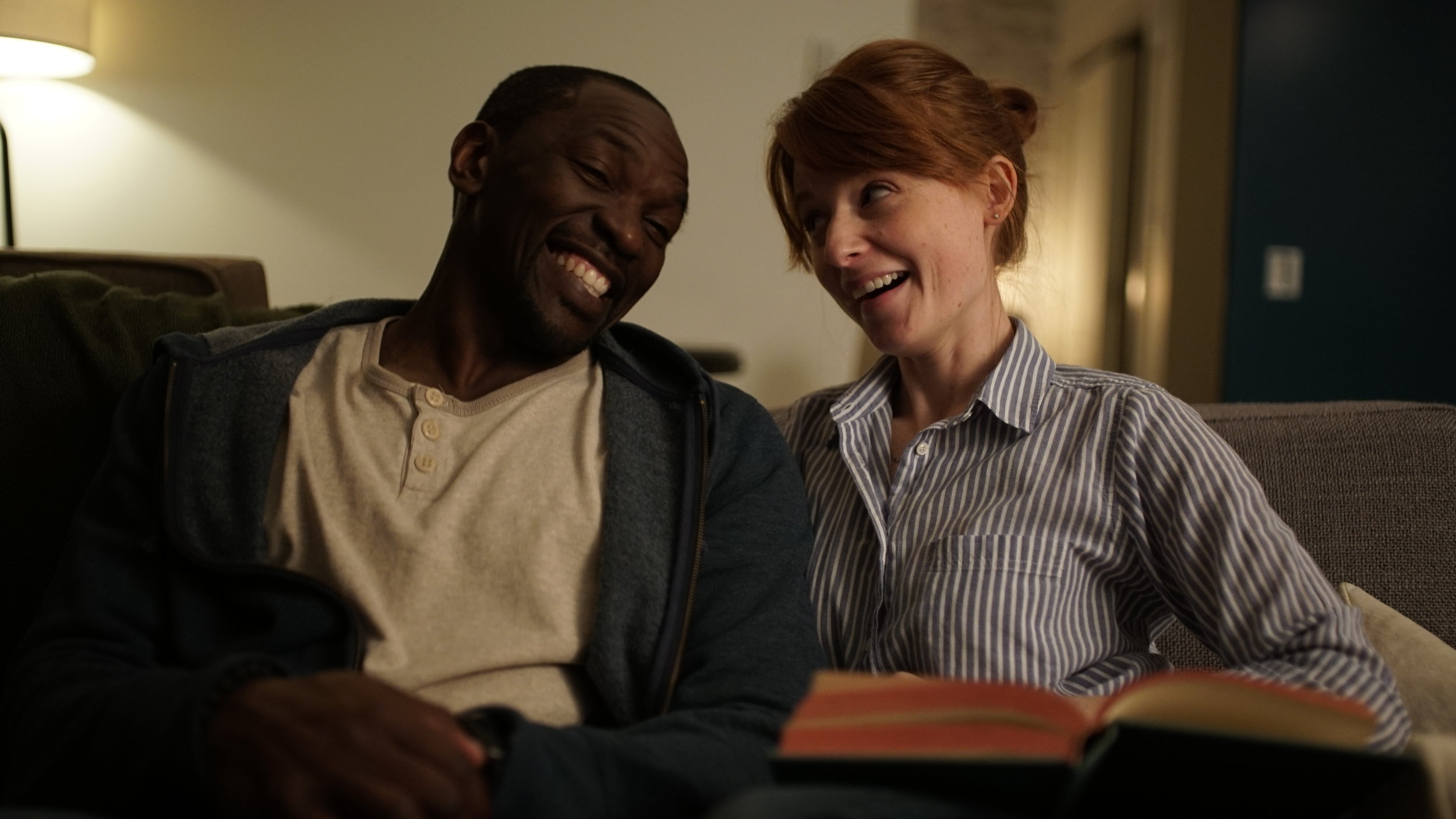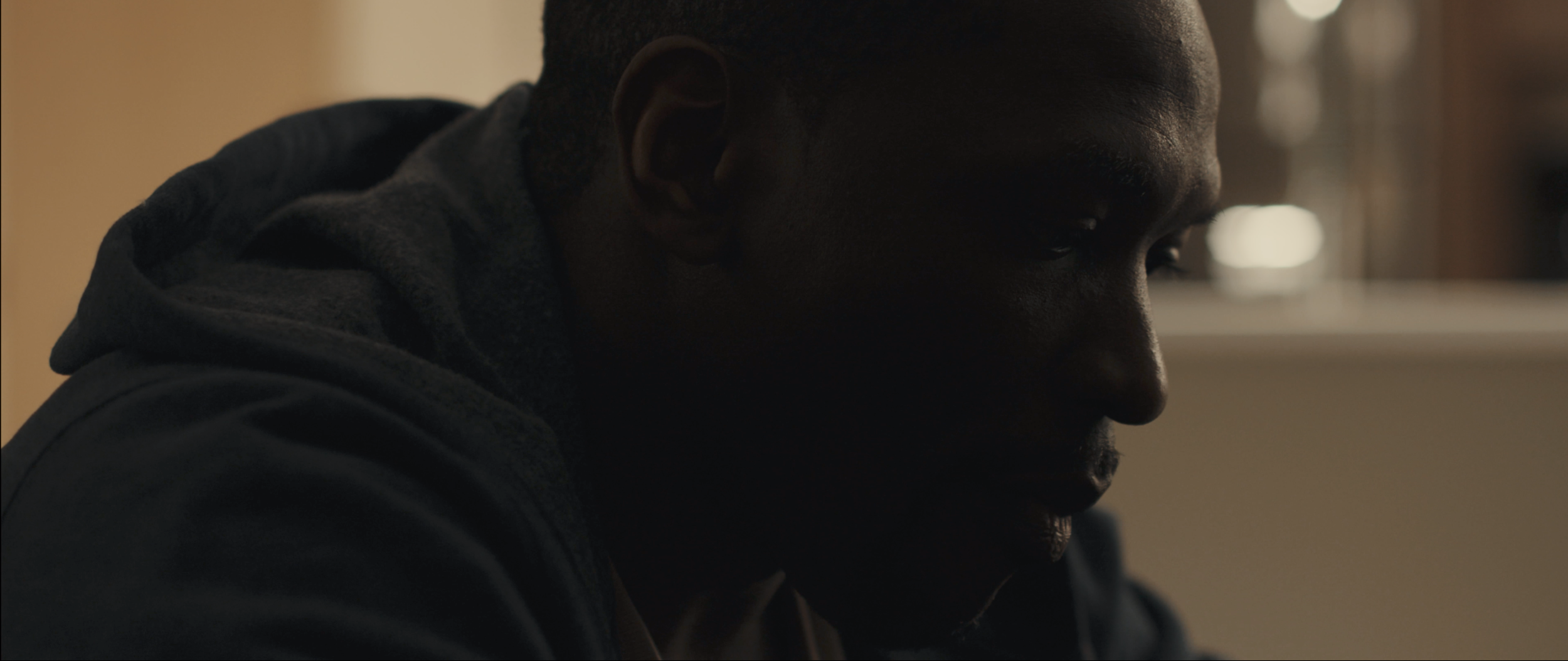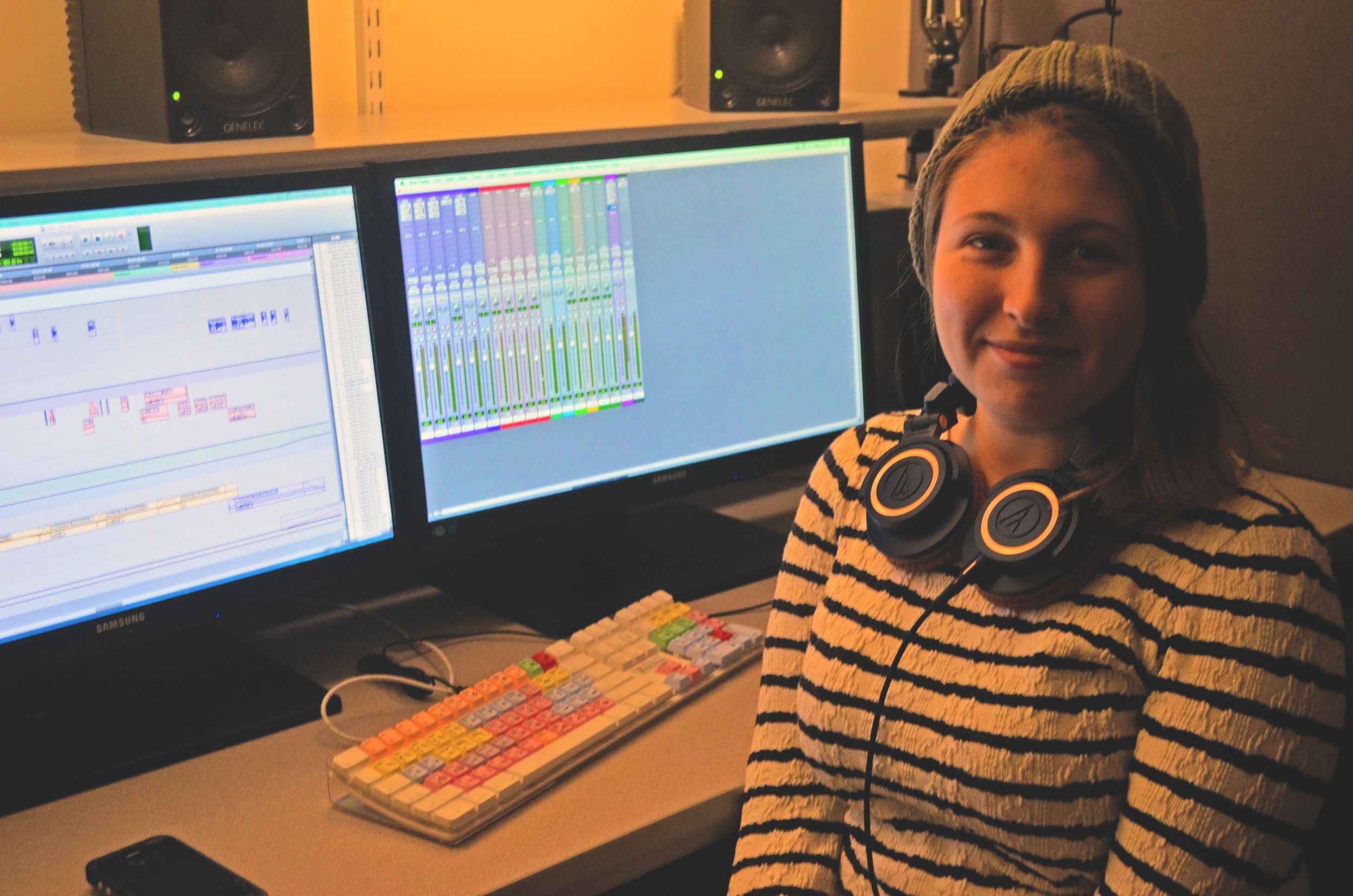A PRINCE IS NOT RESPECTED IN HIS HOMETOWN
“After I wrote this script, I was unexpectedly looking into a mirror. The question became: Could I take on this role with no distance?”
The Story:
This film explores how an aspiring Nigerian actor, Ben, has to audition and embody stereotypical African American roles (roles that are often distributed overseas to Nigerians like himself of American blackness) in order to work and survive as an actor in America.
This paradoxical position that Ben occupies comes to a head when Stephanie, a well-meaning friend, gives unsolicited advice for his next audition.
This film was made with the generous enthusiasm of many people who shared a passion and concern with casting practices in the film industry and the experiences of people at different intersections of identity.
Pre-Production
Michael Jibrin had written a script that was undoubtedly personal. He describes it as looking in the mirror, unexpectedly. But he wasn’t afraid of writing what he knew, because what he knew came from the heart. He also knew that he wanted to work with the talented Natalie Hebert during an acting workshop they attended together. Natalie then introduced Michael to a director she had worked with before, Bryan Sih. Their initial meeting on a cold winter night in Harvard Square brought about a fruitful dialogue about race and casting, which cemented their willingness to work together. Rehearsals and prep began early February.
Cinematographer Yahna Harris signed on soon after reading the script, and began testing filtration, lighting, and lensing that would create a grungy image after some initial talks with Bryan on mood and vision. She settled on a mix of vintage photo lenses and polarizers to create the film’s look.
Location scouting held the utmost importance, with many hours spent driving around to find the perfect settings for scenes. Bryan, Michael, and Yahna were adamant about filming a city that wasn’t sterile and beautiful, but one that would emphasize the realities of run-down public transportation, cold brutalist architecture, and grim fluorescent lighting to contrast Ben’s nacsent expectations of America.
Michael Jibrin prepares for a take as cinematographer Yahna Harris adjusts a light in the background.
Director Bryan Sih and Michael Jibrin discuss a beat in the scene.
Production
Shot on location in Boston, the production mixed traditional fiction filmmaking methods with guerilla production tactics. For example, during the subway sequence, Sih wanted to recreate the exhaustion of a long commute, the type that invites the type of reflection Michael has about his time as a boy in Nigeria. Bryan, Yahna, and Michael therefore rode the train for hours until Michael exhibited that sort of exhaustion for the camera.
Yahna used a combination of a Sony F55 for the interior sequences and Sony a7s II for the more guerilla scenes due to its small form factor. She also used the Sony a7s II for the overpass sequence so that she could mount it to the Ronin gimbal system and move the camera with ease and precision. Cooke lenses were used along with vintage photography lenses.
Post-Production
Editing and color was done in Bo Ying Xue’s home studio in Boston during March of 2018. For music, Bryan enlisted the help of Timothy Colomba, a Boston-based electronic music composer, and Navzad Dabu, a musician based in Los Angeles, to write original tracks. For the mix, the team brought on Jamie Bishop, a New-York based sound designer. Color grading was done in DaVinci Resolve by Yahna.
“The film seems to emphatically suggest that trying to accommodate another culture might mean always chasing a phantom.”
Director’s Statement
Michael Jibrin generously provided the heart, soul, and most importantly, urgency to this film when I first met him. Very quickly, it became clear of the unique intersection Michael occupies as an actor working in America. There is already the problem of racial stereotypes making up the majority of parts that minority actors can play. But Michael’s alienation was doubled by the fact that he couldn’t feel honest in roles portraying a black American experience, being from Nigeria himself and migrating here at a later age. That exact paradox of blackness was what he was able to express through his initial conceptions of the film and what we wanted to add to a discussion of diversified casting and the in-between state emigrants often find themselves in. Michael was able to tackle this right from the opening scene of his initial script, as he leads the audience to constantly adjust to a slippery presentation of identity and a confounding of stereotypes.
It was clear that the actor/director relationship was very important for this film to be made, and I relied on Michael to keep his truth at the forefront. As I talked more deeply with Michael about race and identity, new complexities to our thematic concerns came up. For example, he told me in passing about listening to Tupac in Nigeria and trying to act like rappers he saw on MTV with his friend. That conversation eventually found its way into the film to further confound Michael’s relationship to America’s black culture, which was often delivered to Nigerians, like Michael, in a rarefied, idealized way. In this way, the film seems to emphatically suggest that trying to accommodate another culture might mean always chasing a phantom.
I can’t help but think that a certain gloom hangs over the film. It is a subtle gloom, from Boston’s barren winter to the sterile apartment to the dirty train car windows--indeed, the world had to contain a visual chill. It was important to express a damaged dream, the loss of parity between inner identity and outer perception, and the hope placed in American job opportunity (in this case, acting) which cannot always be immediately fulfilled. Michael is therefore perfect for the role— he has Ben’s striving spirit, one that mixes optimism with an undeniable awareness of the situation’s difficulty. And that’s where Stephanie becomes so important as Ben’s foil and scene partner: although caring, she is nearly careless in her advice regarding his situation, perfectly contrasting Ben’s density of understanding through his lived experience. Perhaps this film brings us closer to something like what he possesses and exposes another layer in regards to representation and casting in the film industry.
Bryan Sih
Los Angeles 2019
***
About the Team
Natalie Hebert
Co-Lead as “Stephanie”
Natalie Hebert has extensive experience in both theatre and film acting. She got her feet wet in Boston’s indie film scene, and soon after was signed to Andrew Wilson’s agency, where she continued to be cast in feature films, shorts, music videos, and commercials. She also starred in a production of the play “A Future Perfect” by acclaimed playwright Ken Urban. She then moved to Texas where she was immediately signed by the Kim Dawson Agency, one of the largest and most prestigious in the South/Southwest market, and began working in the Dallas and Houston film scene, starring in branded content, music videos, and plays.
Yahna Harris
Cinematographer
Yahna Harris’ work has played internationally, and she has been asked to film in Boston, Los Angeles, New York, China, and Haiti. Her work on Winter/Spring won her Best Cinematography at the Redstones Film Festival. She has her MFA in cinematography from Boston University, where she studied under renowned cinematographer and steadicam operator Joe San Juan. She then co-founded the artist collective 4:3 Collective in Boston, creating music videos for the bands such as Penny and Sparrow, Billy Wylder, and Standby. She also worked on branded content with clients like America’s Test Kitchen, Fidelity Investments, Funny or Die, US Weekly/Orville, and MIT.
Jamie Bishop
Sound Designer
Jamie is a New-York based sound designer who works with Pro Sound Effects. She has worked on countless short films as a recordist, mixer, dialogue/foley editor, and sound designer. Proficient in Pro Tools, Jamie’s work creates the third dimension needed for an immersive film experience.
Michael Jibrin
Producer / Writer/ Lead Actor as “Ben”
Michael Jibrin grew up in Nigeria where he found a passion for acting and moved to America in 2012 to restart his career. After landing a role in Kathryn Bigelow’s Detroit, he wrote “A Prince is Not Respected in His Hometown” and produced it in the winter of 2018. Jibrin has recently landed roles in an unannounced Apple TV series and a longer-form film, once again collaborating with director Bryan Sih.
Bryan Sih
Writer / Director / Editor
Bryan Sih is an award-winning filmmaker who works on shorts, music videos, branded content and documentaries.
He is currently in post-production for his first feature Before a Wedding. He is in pre-production for what he calls “an Asian-American epic.” He is also post-production for a longer-form film, again teaming up with Michael Jibrin, Natalie Hebert, and cinematographer Yahna Harris, about a black enclave, family history, small town living, and ghosts.
Jack Garrett
Sound Recordist
Jack Garrett is founder of Sound Team Six, covering location sound recording and sound post production. He is also a member of the Boston local sound union. He works on numerous indie features, short films, branded content, and documentaries.

























